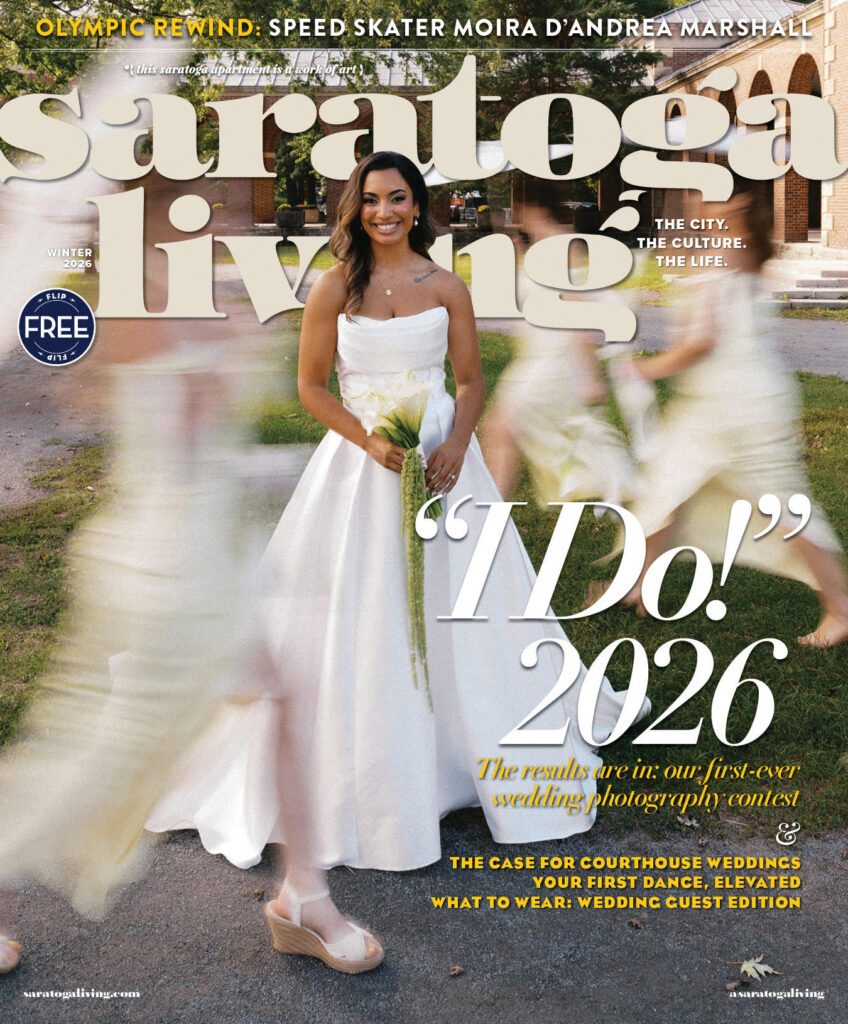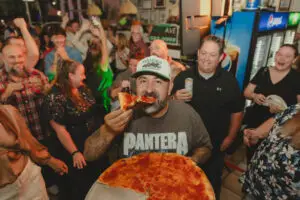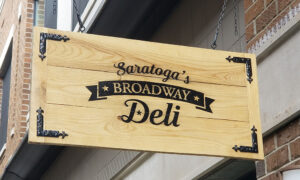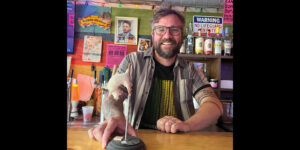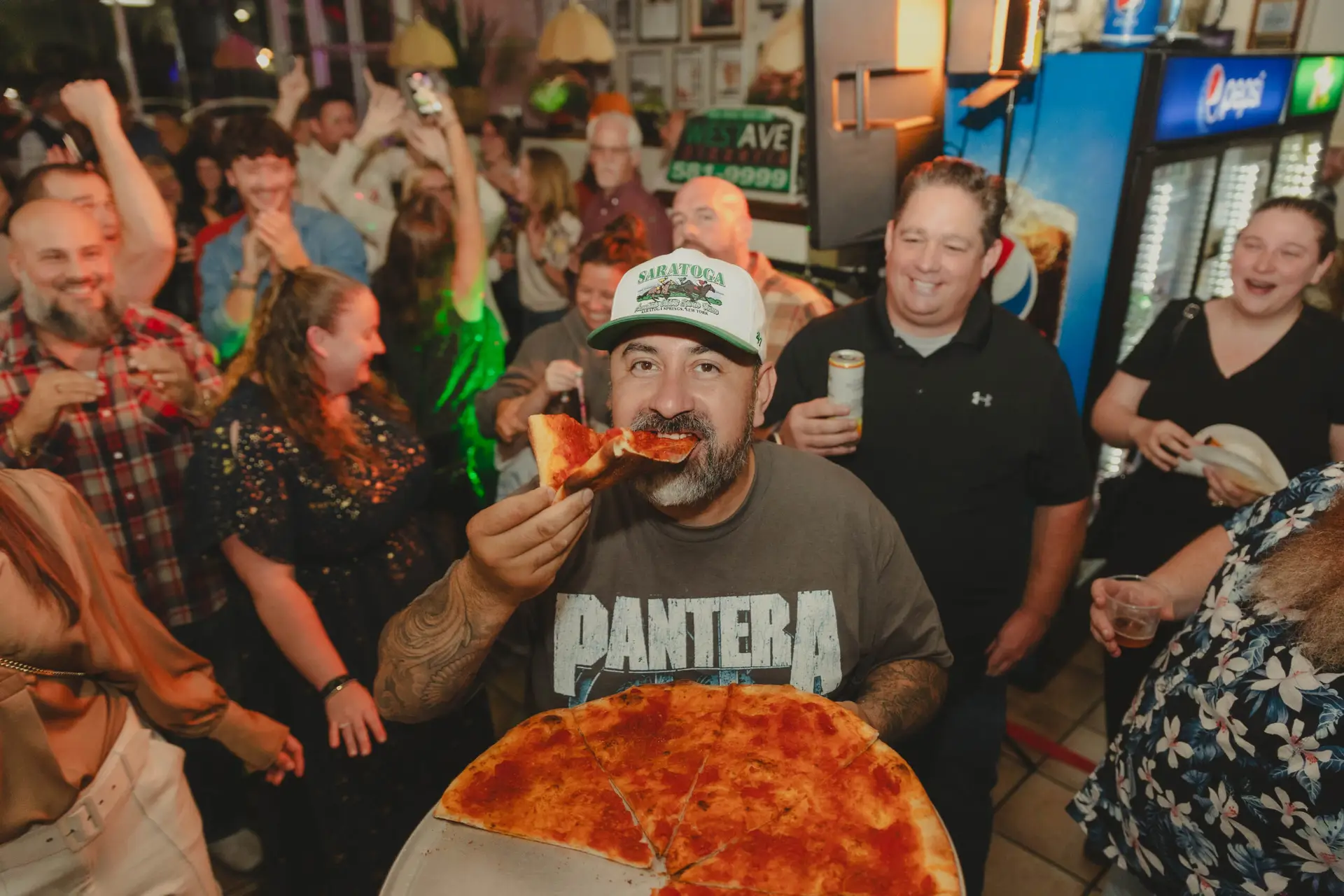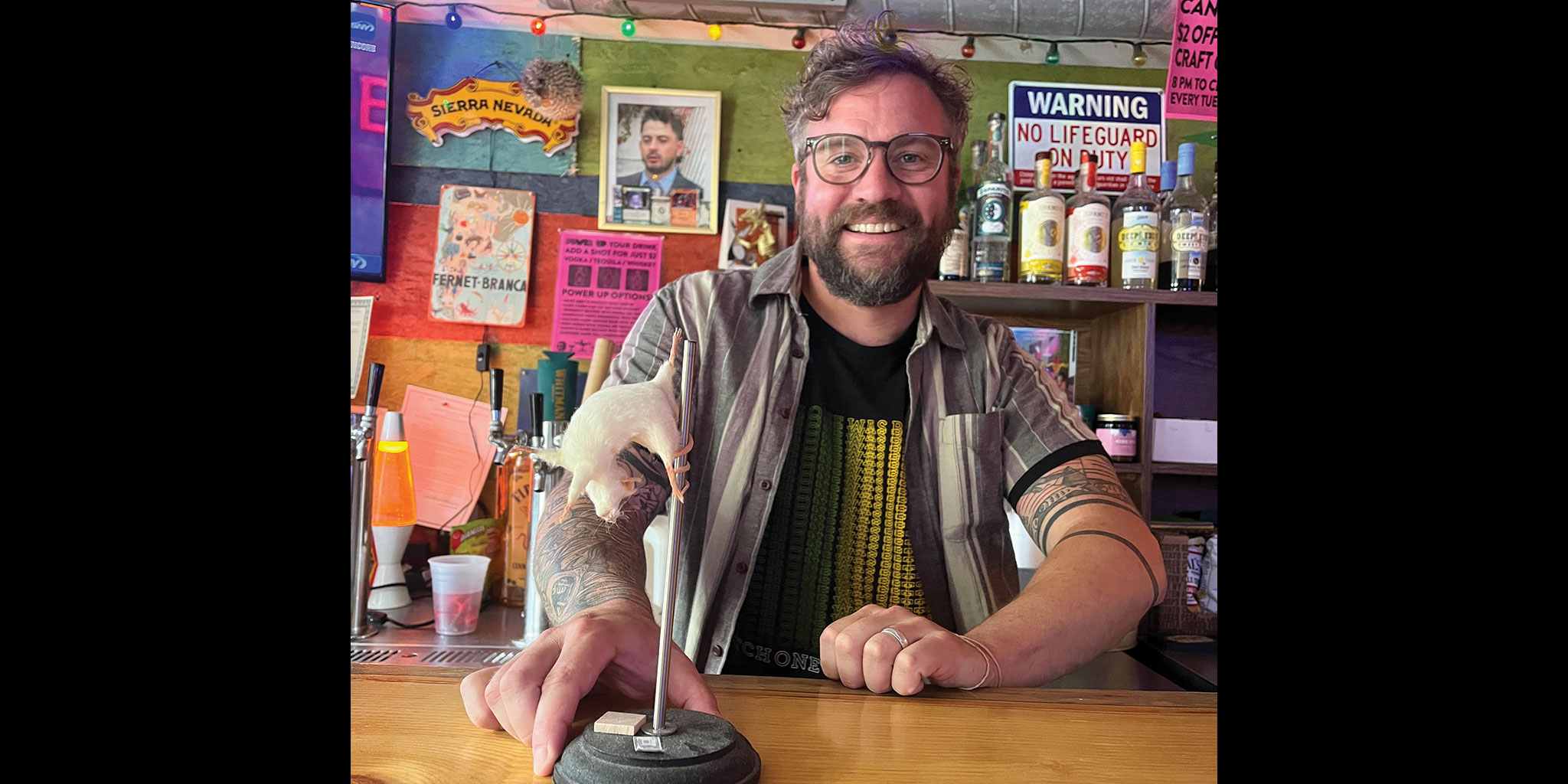Editor’s Note: This is the first in a series of stories to be published on saratogaliving.com under the shared heading of “What’s Going On,” tackling subjects like the black experience, systemic racism, activism and the recent murder of George Floyd, among other topics. Read more about the series’ chrysalis here.
I am the product of the city of Saratoga Springs. I was born at Saratoga Hospital, grew up off of North Broadway near Skidmore College (my parents worked there for most of their careers) and made it through the public school system (Skidmore Nursery School, the Beagle School, Lake Avenue Elementary School, Maple Avenue Middle School, Saratoga High School). And in those first 18 years, it never occurred to me or bothered me how homogenous everything was.
Would it surprise you to learn that Saratoga is more than 90 percent white? If you weren’t aware, that begs the questions: If you were born here, how has that fact affected your upbringing? Has it skewed the way you view the city or its people? Has it shifted your outlook on the world? Has it colored your perception of what is fair and just and what isn’t? And what have you missed out on by primarily being around other white people? Has it twisted how you feel about or look at people of different races? Has it made you say or feel things you may have later regretted? Has it manifested itself in pure hatred or racism?
In sharp contrast, black people make up just two percent of Saratoga’s overall population—a smidgen more or less, depending on the data source. Now, take a second and try to put yourself in a black person’s shoes who grew up in Saratoga. Having a tough time? That’s the point.
Despite that Brobdingnagian racial divide, as a kid growing up in Saratoga, I can count myself among the lucky ones, having grown up down the street from a black family. Toby and Debbie Youngblood’s two children, Tianta and T.J., were about the same age and in the same grade as me and my older brother, and because little kids don’t think about things like demographics or otherness—at least we didn’t—we spent a lot of time doing the things kids do when they’re growing up together. We played together in one another’s yards and two-square on the street together. We waited together for the school bus to come pick us up in the morning. Though T.J. and my older brother ended up going to different high schools, Tianta and I were in school together all the way from elementary to high school, eating our brown-bagged or school lunches in the same lunchroom together; learning in the same classrooms and having many of the same teachers; and playing music together in the same orchestras. Having a black friend was part of my worldview, so it never seemed odd or out of place to me.
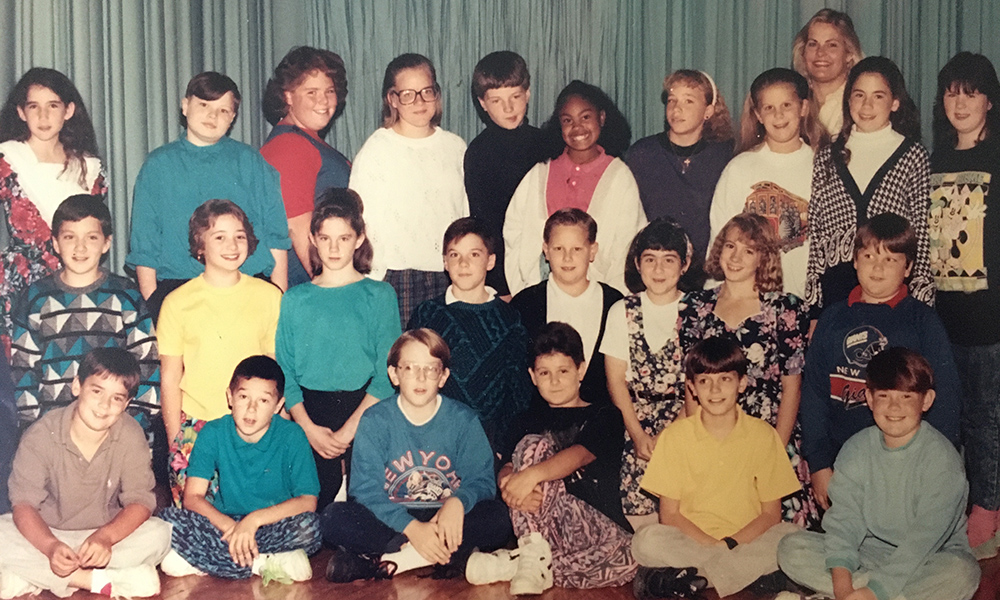
As I grew older and learned about all the horrific things that black people had had to endure in America throughout the centuries such as slavery, lynchings, Jim Crow laws, assassinations, police brutality and onward ad infinitum—I developed a true sense of Weltschmerz about it all. The feeling that I couldn’t affect change; that I had no power over the viciousness and hatred of others. (I had been raised Jewish—and had met my father’s cousin who had survived a Nazi death camp—so I was, in some ways, familiar with what the seeds of genocidal hatred could sow; his entire family had been murdered at Auschwitz.) Freshman year of college, I had my first black professor—my first black teacher ever, for that matter. (He was incredible.) Senior year of college, I took a class on the Harlem Renaissance from that same professor and read Their Eyes Were Watching God by Zora Neale Hurston, among other groundbreaking black literary and poetic works. And I eventually wound up in Brooklyn, surrounded by people of all different races, colors and creeds, and still, it never occurred to me that something was inherently wrong with the homogeneity of my hometown. The fact that I had just one black friend—and there were, maybe, 5-10 black kids in my entire high school class of 450-plus—was a problem.
But that makes my friendship with Tianta that much more powerful, and as I’ve struggled during the past few weeks to come to grips with the murder of George Floyd—as I’ve meditated on what my role should be as a 40-year-old white man, lifestyle journalist and editor, wondering what power I wielded to change anything—I decided that it was here where I should begin: our friendship. So, I texted Tianta and asked her if she wanted to talk about everything that was going on. She called me.
***
I had a major epiphany about six minutes into my conversation with Tianta, who like me, decided to move back home after experiencing life outside of Saratoga for awhile. After getting her undergraduate degree at the University of Delaware and her JD from Western Michigan University’s Thomas M. Cooley Law School, Tianta ended up becoming a successful attorney and practices law right here in the Capital Region. I had been grappling with the “why now?” of all of this—why the urgency for change now versus when nearly the same exact thing had happened to Eric Garner in 2014, for example? Or Breonna Taylor or Ahmaud Arbery earlier this year? (There are countless other examples.) Why all the protests, in such great number, around the world even?
The answer had been right in front of me the entire time: the COVID-19 crisis.
The crisis had created a perfect storm, and subsequently, the gale-force winds needed for immediate change. Despite being “off” on Memorial Day, the day of George Floyd’s murder, we were really still mostly isolated from one another. Many of us New Yorkers were at home—save for those that had been allowed to go to the beach or congregate in groups of 10—on strict orders from Governor Andrew Cuomo. And in the days following the murder, we were at home again, with many of us glued to our smartphones, laptops and TVs. (Traffic to this website has been breaking records over the last few months; it doesn’t take a genius to understand why.) This time around, we couldn’t avoid it. We saw the murder unfold again and again and again, whether it was on Facebook or Twitter or Instagram or the local/national/cable news channels. And there was no denying that the police officer that had his knee on George Floyd’s neck was the perpetrator of a murder and that his fellow officers, who stood by and did nothing, were grossly, criminally negligent in their inability to stop it.
Because of that stir craziness—and the video’s hyper-saturation—it compelled us to get out, to go do something meaningful, like protest. And unlike April, when it would’ve been much incredibly risky—potentially deadly even—to gather in great number in the streets anywhere, things seemed to be looking up at the end of May and beginning of June, with the state’s reopening plans underway, so we figured, what the hell? Even though some states were seeing spikes in COVID-19 cases, the majority of people were now social distancing and wearing masks. More people who wanted to were getting tested.
So, all of this led me to phone a friend. Tianta and I covered a lot of ground in 26 minutes—George Floyd, systemic racism, kneeling—and a lot of what she told me still doesn’t sit well with me. But I needed to hear it, and I believe that you do, too. Seeing, knowing, learning, then speaking out: That’s how change comes about. Allowing yourself to love, too.
Below, I’ll let you hear Tianta’s thoughts in her own words (I’ve only lightly edited our conversation for punctuation and clarity).
On the murder of George Floyd:
“You know how a lot of times, in front of the post office, there will be protesters out in Saratoga? There were people standing out there regarding George Floyd. Around the corner from me, there was a car [that had] ‘Black Lives Matter’ painted on the back, and I know the family that owns the vehicle is Caucasian, so I do think people in Saratoga are, like, ‘Jeez! Oh my god! Even if it’s just watching the news…oh my god! Like, this is crazy. And if you watched the tape of the police officers, and especially the police officer that had his knee on George’s neck, George is saying, ‘I can’t breathe! I can’t breathe!, and his last words were screaming for his mother, and the other police officers were just standing there watching and did nothing. And it’s not like [the police officer] couldn’t stop what he was doing with his knee; it’s [not] like [Floyd] couldn’t have gotten up. Because where was George going to go with all those police officers surrounding him? Nowhere. It didn’t have to happen. Over $20 of quote-unquote ‘counterfeit money’? Allegedly counterfeit money? But here’s the thing, because of that and also because of the power of the media now, look at the reaction of society. Because of this video. Look at what this has done.”
On what her late grandparents would’ve thought:
“My grandparents were from the South: My grandfather was from Union Springs, AL and my grandmother was from Manning, SC, and they came up here to get away from the Jim Crow laws. That’s why they came up North. I don’t know particularly why they chose Saratoga Springs. All I know is that my grandfather knew someone that worked in Saratoga, and he was like, ‘You should move your family up here; it will be a better situation.’ If both my grandparents were alive, I think they would just be distraught over what happened to George Floyd, but they wouldn’t be shocked. Because these are things that they saw when they were in the South. But nobody could do anything about it, really. As a black man, you weren’t going to challenge a white police officer in Union Springs, AL, because you would’ve been killed. If they were alive today, I think they would be in awe of everyone coming together and wanting and demanding change. If they were alive to see white, black, Asian, Hispanic peaceful protesters…everybody is coming together. And I think that would bring a smile to their face. And they would probably say, ‘It’s about time.'”
On the role of the media and police, in regards to the protests:
“Everybody’s home. Everybody’s watching. Everybody’s reading. And you see it now on the news 24/7. It’s not a glaze-over; well, this happened to this person. I think [of] the power of [the] media. But then you also have to think, well, how many other black lives were affected, and there wasn’t a phone where somebody was videotaping. We’ll never know, we’ll never know. But then you can’t also take away, which I thought was really powerful, the police officers and police chiefs coming together and saying, ‘No, we agree with your peaceful protests. We agree with you.’ And them hugging. And there are a lot of untold stories of police officers that do good in the community, that don’t use excessive force, that are not racist or prejudiced against black people, minorities and are really trying to help their community. Their stories go untold as well.
On what it was like growing up in the predominantly white city of Saratoga:
“It’s so interesting for me, growing up in Saratoga [and going to] Lake Avenue in the ’80s. Obviously, we went to school together, and my brother and I were [some of the only] African-American students. There wasn’t a lot of us, and I can look at my class pictures that I still have from back in the day, and I would be the only African American in class. Same thing: My brother went to Spa Catholic, and he, I believe, was the only African American that graduated high school his senior year in 1996. Only one in 1996! But now, I know there have been more black students that have graduated from Spa Catholic and [Saratoga High]. But back then, still now, a lot of Caucasians in Saratoga may not even have a black or minority friend. So, they don’t see or have the conversations that we would have. And they’re going to see things differently. It’s very subtle. If you’re not aware of it and haven’t been in the situation, you’ll never see it.”
On dealing with systemic racism in the workplace:
“I was at a [real estate] closing, and everybody was like, ‘You’re the attorney? What law school did you go to? Oh, you passed the bar?’ Or, ‘You’re from Saratoga? No, like, you grew up here? Really? You live here?’ And it’s like black people can be from Saratoga! I was like, ‘Yes, I graduated from Saratoga High School.’ And they’re like, ‘Wow.’ People whisper certain things or challenge me on numbers at a closing. ‘Is that the amount of money I’m supposed to get? OK, here’s my calculator, let’s break it down.’ You know what I mean? It’s, like, oh my god. Or people say, ‘Where do you work?’ And I say, ‘I work for a [law firm].’ And I could be dressed nice, have a suit on, or in the summer have a nice dress on. Or, ‘Are you the legal assistant?’ That’s the first thing that comes to mind when somebody looks at me. That’s not to say that that happens all the time, because I do come across plenty of attorneys who are super nice and helpful. It’s just every once in awhile you get those ones that don’t know any better.”
On the ramifications of the George Floyd video:
“It’s hard when I see the George Floyd video, because now they keep on running it. But I feel bad for my brother. Because I wonder…how old was George when he died? 46? Well, T.J.’s 42. That could’ve been him. Do you see what I’m saying? Someone could’ve quote-unquote alleged, because they haven’t quite determined whether that $20 bill was counterfeit or not, something against my brother, and then a whole bunch of police officers could’ve surrounded him and that could’ve happened to T.J. So, I’m afraid for him sometimes. And I’m afraid for my nephew, who’s now 18 and in this big, bad world and how he’s going to handle certain situations.”
On her thoughts about people who say “all lives matter” or “blue lives matter”:
“We know white lives matter! You guys have been respected…of course, you guys matter. But it’s [about] being specific: We matter, too. We deserve the respect that you get from law enforcement, too. That’s what it is. But do I think that all lives matter? Absolutely. Would I want to see this happen to someone of another race? No. No, no, no. But because of the time that we’re in with this coronavirus, it’s almost as if this is the straw that broke the camel’s back. This is ridiculous. When people watch that video and see the 8 minutes and 46 seconds of the knee being on the neck and poor Mr. Floyd saying, ‘I can’t breathe! I can’t breathe!’ and the other police officers just standing there, watching, knowing this isn’t right, and [doing] nothing. This is another thing: People need to speak up! If you see something isn’t right, then say something and be able to have a voice and challenge [it].”
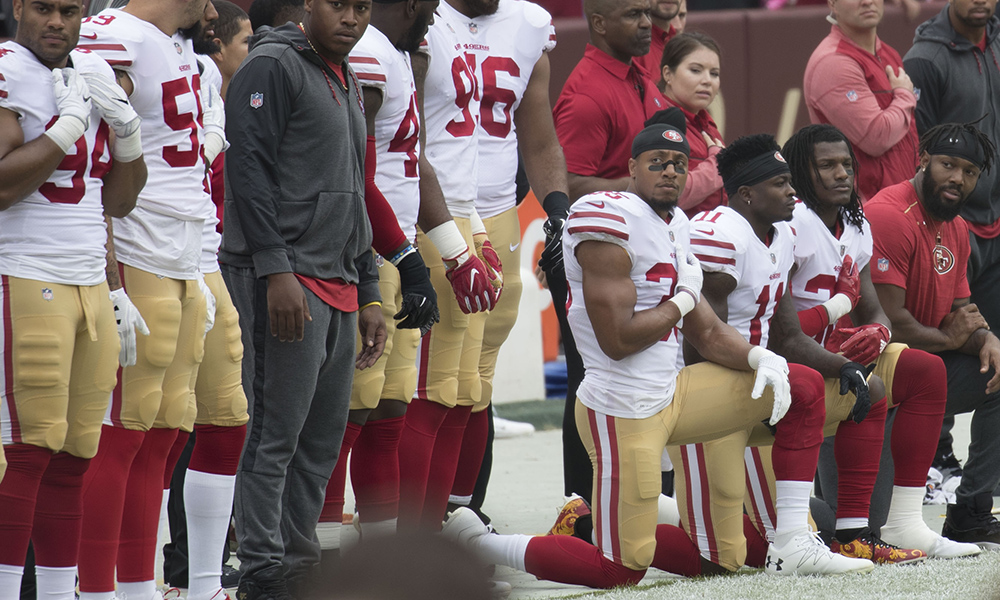
On her stance on Colin Kaepernick and kneeling:
“He just took a knee and did it peacefully, and it turned the NFL upside down. The owners weren’t happy. And now, all of a sudden, he’s blackballed from being in the NFL. And he hasn’t [played] since it happened. And now, all of a sudden, because of this movement, the NFL commissioner is coming out and saying we agree. And now everybody’s sorry for the way they treated Colin. OK, can he play in the NFL now? Is somebody going to [sign] him? Even if he is a second-string quarterback at this point. He made it to the Super Bowl! It’s not like he can’t play. It’s the same thing: We matter. Everybody needs to wake up and see what is going on. Not only open your eyes but open your heart, and listen to what people are saying and learn from it. My brother was in the Army, I had uncles that retired from the military. It’s not Colin being disrespectful towards the United States, the flag, to people in the military. It’s like, I’m taking a knee, because these things happened, and no one’s doing anything about it. It’s not like he went out on the field and burned the flag. It’s really heart-wrenching; I feel bad for him. You know, people are like, ‘Could he [have done] things differently?’ Well, everything’s in hindsight, if you think about it. At the time, he felt in his heart what he was doing was right, and because of that, he stood for something and took a fall in his career.”
On whether she’s planning on attending any protests herself:
“I have not been to a protest yet, because I’m so afraid of getting the coronavirus. I’m high risk, so I’m afraid to go, but I know that they’re going to do another ‘March on Washington’ in August, and I have a cousin who is in Florida and into politics, so she wants to go, and I’m thinking about going to DC, too. I’m just afraid of the coronavirus, because there might be another surge, and I don’t want to get down there and be amongst a whole bunch of people, and I guarantee you, no one’s going to be practicing social distancing. Some people will be, other people won’t. Some people will have masks on, some people won’t. What would happen if I came back here and I’m sick? I’m scared of that.”






